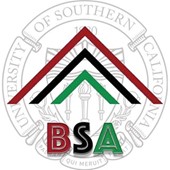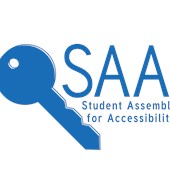Welcome to the Equity Board
Hi Everyone, my name is Steven Vargas & I’m part of the Equity Board; I have been meeting with different desks and organizations as I develop a style guide for diverse reporting strategies. I decided to start Equity Board Briefs:
- I will share what I discussed with Cultural orgs and Centers, as well as notable work I’ve seen produced.
Thank you to everyone who has taken the time to speak with me! I greatly appreciate your efforts to help me change the culture of our newsroom.
Cultural Leader Takeaways
I’m going to focus on some important information I got from cultural leaders at USC. In the past week, I spoke with representatives from the:
USC LGBT Resource Center ,
,
Asian Pacific American Student Assembly (APASA)
Black Student Assembly (BSA), and
Student Assembly for Accessibility (SAA)
Important takeaways:
- At the beginning of your interviews, in addition to asking people to say their name and how they spell it, also be sure to ask for pronouns.
- When contacting sources about a topic that may affect their community, DON’T assume that they know exactly what you’re talking about.
- If you want a comment on a new policy or event, provide some context. Although you may be contacting the right community, it isn’t their responsibility to know everything going on.
- Introduce more detail on the story to see if they can comment.
- Also be sure to add something along the lines of “if you are unable to comment, do you know of anyone who may be able to speak more on the subject?”
- This puts less pressure on the person you are contacting to have all the answers, and may lead you to an even better source.
- What is the difference between cultural organizations and cultural centers?
- Centers operate under USC and are less likely to provide a comment on anything because they have to go through media relations.
- Centers hold an actual, physical space in the Student Union and they primarily provide resources to students.
- Cultural organizations are student-run and are typically more accessible for an interview.
- They don’t have a physical space, other than the USG office if they are housed under USG. These organizations have a more active role in campus culture and politics. They are known for organizing events and creating social spaces for students.
- Centers operate under USC and are less likely to provide a comment on anything because they have to go through media relations.
- When it comes to reporting on the LGBTQ community, make sure that the person you are speaking to feels comfortable being associated with the community in print to ensure safety. Some students aren’t out to their parents for safety reasons and we don’t want to jeopardize that. It is not necessary to disclose people’s identities unless it is pertinent to the story. For example, if you are doing a story on a transgender issue, you may want to disclose that about your source, with consent. Otherwise, if the story is only broadly about the LGBTQ community, it is not necessary.
- APASA is a VERY LARGE organization. They hold 26 member organizations, each dedicated to a specific culture or topic. It is better to contact a member organization about a story if there is a specific community you are reporting on.
- For example:
- If you are reporting on the Korean community, it is better to contact the Korean American Student Association (KASA) instead of APASA because APASA may not have someone from the Korean community in their head leadership.
- They noted that they’ve been getting a lot of press inquiries because people tend to assume the leadership of APASA can speak on all Asian Pacific American communities. Be sure to think about what other organizations there are other than the larger, easily attainable sources.
- For example:
- Acknowledging the existence of SAA. They’re a relatively new organization (had a trial year under USG during the 2019-2020 school year) so they aren’t well known.
- They are a great source for stories regarding accessibility on campus and students with disabilities. You can find out more about them here: https://www.instagram.com/usc.saa/
I hope everyone is putting these notes into action. If you have any questions or help with anything, I’m always a slack message away. Keep up the good work!
Best,
Steven Vargas
